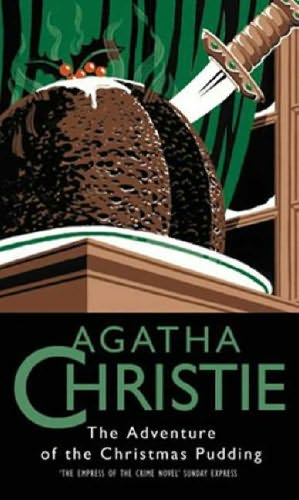
Short stories - some reprints from much earlier, one a rewrite, one an old story with a new title. Only the first story is "Christmassy" - Poirot is invited down to spend Christmas and unmask a jewel thief in a country house. In many ways this story is a pastische of what people think an Agatha Christie mystery to be - country house, bright young things, complications, impostors, glamorous thieves, lots of snow and servants, a dead body, a taint of international intrigue and a twist or two.
It's notable for showing Poirot staging a crime which is also a rather macabre practical joke. The other thing this isn't really is a "whodunnit" since it turns out that the thief is, er, well, pretty much who it was supposed to be all along.
It is the first story in the collection to feature disguise and assumed identity - an idea which is played out again in The Under Dog, and then rather more dramatically in The Dream, Four-And-Twenty Blackbirds, and Greenshaw's Folly. In fact, the shame of these last three stories is that the trick in each case is identical. Admittedly they're very different stories, but you wonder if Poirot spent his entire life surrounded by people in false whiskers.
The Dream is a very interesting story in that it places Poirot up against the supernatural. This is a terrible idea on the crook's part, as Poirot cannot accept an impossible explanation, and therefore solves the crime. It's also a match between the villain and Poirot's vanity - and there's no doubt who can win this one.
Servants underpin both The Under Dog and The Adventure of the Christmas Pudding. In the latter, Poirot receives a warning from a worried maid, in the first Poirot finds himself trying to rationally solve a murder while Lady Astwell jumps up and down pointing at a hapless secretary and denouncing him based only on feminine intuition.
The Under Dog and The Dream are both classic "House of Evil" adventures in miniature - a dead and unpleasant businessman, impostors, put-upon secretaries, a not-exactly grieving family.
These tropes rear their head again in Greenshaw's Folly, a Miss Marple story that features a strange house, its eccentric owner, resentful housekeeper, wretched gardener, locked door mysteries, a policeman, lost relatives, and a fair amount of disguise. It also, remarkably, features a divorced woman who is employed as a secretary. There's also a very strange sense of the story heading in one direction and then turning in another (there's a lot of mention early on about clocks and hidden treasure), but this may just be misdirection from the mystery here being remarkably similar to two other stories in the collection. In many ways the story fits in much better in "Miss Marple's Final Cases", an anthology which allows Miss M to shine, and where the mysteries are sufficiently different to prevent the reader from groaning "not again". Especially as you have Miss Marple solving the mystery by magic and also dropping the wonderful line "When I was a girl, Inspector, nobody mentioned the word Stomach."
Finally there's The Adventure of the Spanish (Baghdad) Chest. Which is a weird and satisfying blend of Othello and Rope, mixed in with a truly gruesome method of murder that's curiously like something out of Edgar Allen Poe. It's curiously like a stage play, and isn't really so much a mystery as a poisonous puzzle box.
Next: More short stories with Poirot's Early Cases

No comments:
Post a Comment